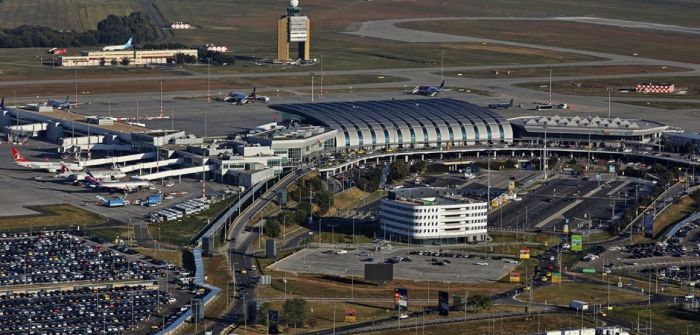The operator of Ferenc Liszt International Airport in Budapest, Hungary, has announced measures designed to address a number of possible COVID-19-related scenarios.
Budapest Airport is suffering a near total halt to passenger traffic. Since the virus began to spread, more than a million seats have been lost from its schedule, and the few flights that are still operational are transporting up to 90% fewer passengers than in the same period last year. The airport operator expects to see most passenger flights being suspended in the upcoming days.
The airport is optimistic that it can weather a crisis of several months, even during a period of zero passenger traffic. According to the airport, its active financial risk management also ensures that it will not suffer significant financial losses, should individual airlines or other partners undergo financial difficulties. However, Budapest welcomes all measures undertaken by the Hungarian government or the European Union to support the tourism industry and those working in it.
To manage the current situation, the airport will introduce new measures, defer certain projects and expenditure, and introduce cost-saving activities.
“Since January, 5,700 flights, more than 1.1 million seats have already disappeared from Budapest Airport’s schedule. Nevertheless, the airport continues to operate safely, as we have to ensure that those who would like to return home to Hungary or to other countries can travel. Additionally, cargo traffic must be maintained in the interest of all Hungarians. It is imperative that cargo flights should continue to operate, with indispensable supplies, such medical or pharmaceutical products on board,” said Dr Rolf Schnitzler, CEO of Budapest Airport.
“We are now also working on mitigation measures, and I am hopeful that after the pandemic has died down, we will once again be able to focus ongrowth and our development,” he concluded.
To protect its staff, Budapest has introduced temporary measures with regard to shift systems, working-hours quotas, work during individual shifts and the use of resting rooms. To ensure the continuous operation of the airport, certain measures have been taken, including: the revision of shift management and temporary eliminating shift systems which involve staff meeting counterparts from other shifts; altering of processes to minimize personal contact; establishing separate functional teams for certain critical positions; where possible, using digital platforms instead of meetings; and enabling staff to work from home where feasible.

